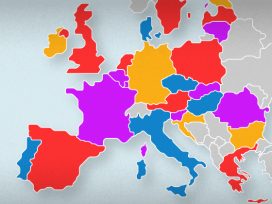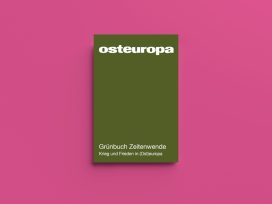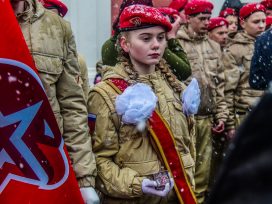Extreme violence, mass detentions, internet shutdown: the response of the Russian police to Moscow’s biggest anti-government protests in a decade has been a reminder, lest last Summer’s football fest deceived anyone, that the current regime has absolutely no intention of releasing its grip on power. And yet the arrest at the end of July of all eight opposition candidates standing in September’s Duma elections seemed an overreaction even by the standards of the Russian authorities. As a recent Levada Centre poll showed, more Muscovites support the protests than oppose them. It seems that the government has good reason to be afraid of putting its popularity to the test.

Photo by Vladimir Malyavko from Unsplash.
So is it solely wishful thinking to ask what next? Unlike the demonstration wave of 2011–2012, these protests appear to be more than what one commentator in Osteuropa has characterized as the outpouring of traditional liberal disdain for the ruling elite and its ‘industrial’ hinterlands. Rooted in a younger generation, the protests seem to possess an organizational backbone, not to mention strength of purpose, that suggests sustainability. But no one, least of all the protesters themselves, underestimate the sheer weight of resistance to potential democratization in Russia.
As Irina Borogan and Andrei Soldatov have written, a political culture inimical to ‘western’ values of freedom, combined with a strong set of historical grievances among a class of technically-schooled former elites, mean that Putin is less the cause than the symptom. In other words, Putinism will outstay Putin. Borogan and Soldatov’s article is the latest addition to the Eurozine focal point ‘Eurasia in global dialogue’ – a collaboration with the Institute of Human Sciences in Vienna.
In the US, the question of Russian interference in the electoral process is filtered through the exceptionally fraught question as to whether the Mueller Report ‘exonerates’ Trump. In a European context, the question of Russian interference can be answered more evenly. As Anton Shekhovtsov writes in the latest instalment to Eurozine’s European Parliamentary election report, the Russophile far-right in both Italy and Austria have so far lacked the leverage to further Moscow’s interests. In the European parliament, too, a strengthened far-right will not impact directly on the EU’s position on sanctions – not least because far-right Russophilia clashes with political self-interest.
Also to look out for is Ayşe Durakbaşa’s history of the ‘question of women’s rights’ in Turkey, first published in the journal L’Homme. Beginning with a discussion of the secular reforms of Kemalist ‘state feminism’ and its subsequent critique by second-wave feminism, Durakbaşa goes on to explain how the AKP has appropriated feminist discourses to suit its own authoritarian agenda.
 Simon Garnett
Simon Garnett
Senior Editor
This editorial is part of our 16/2019 newsletter. You can subscribe hereto get the bi-weekly updates about latest publications and news on partner journals.


 Simon Garnett
Simon Garnett





